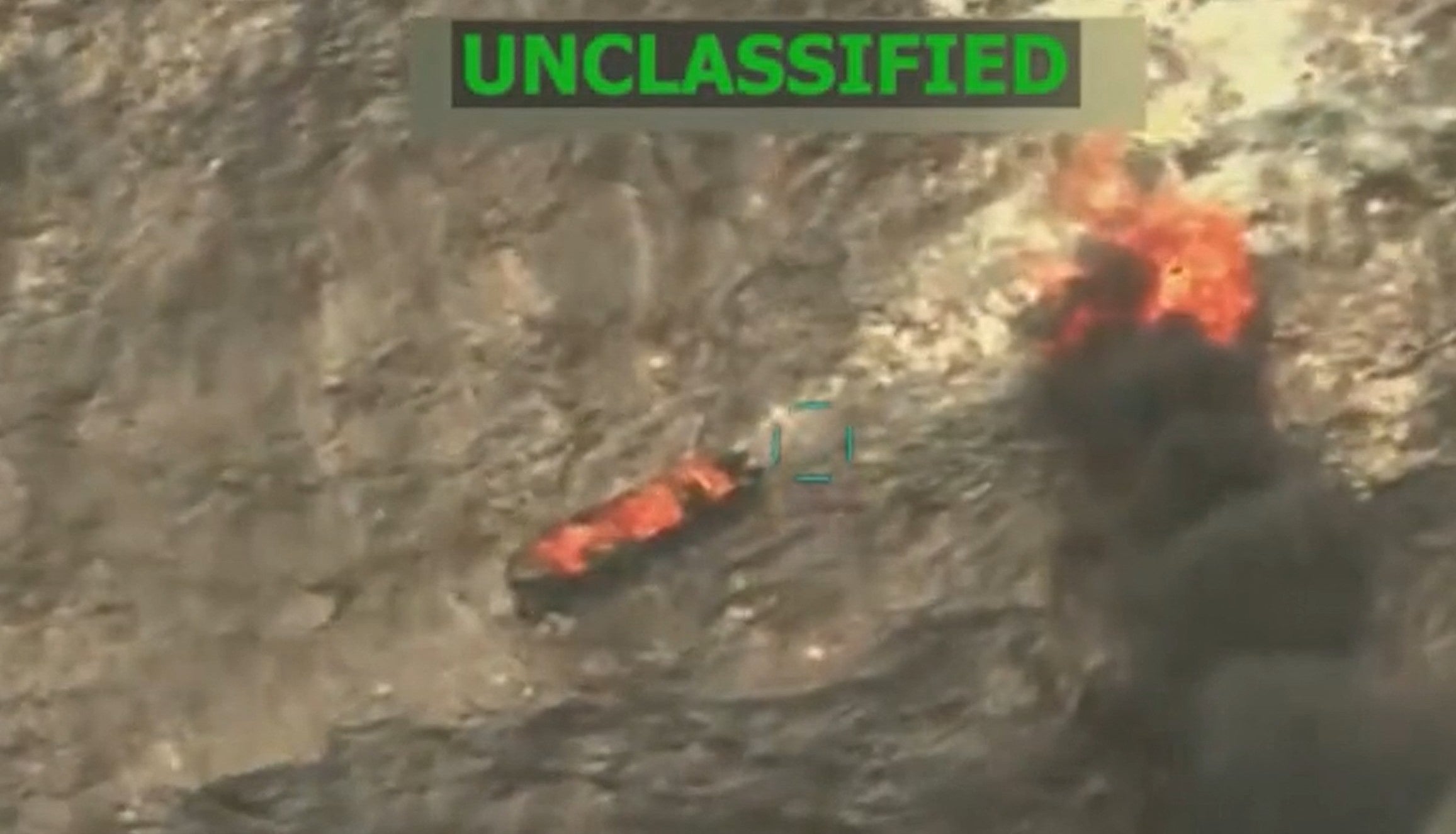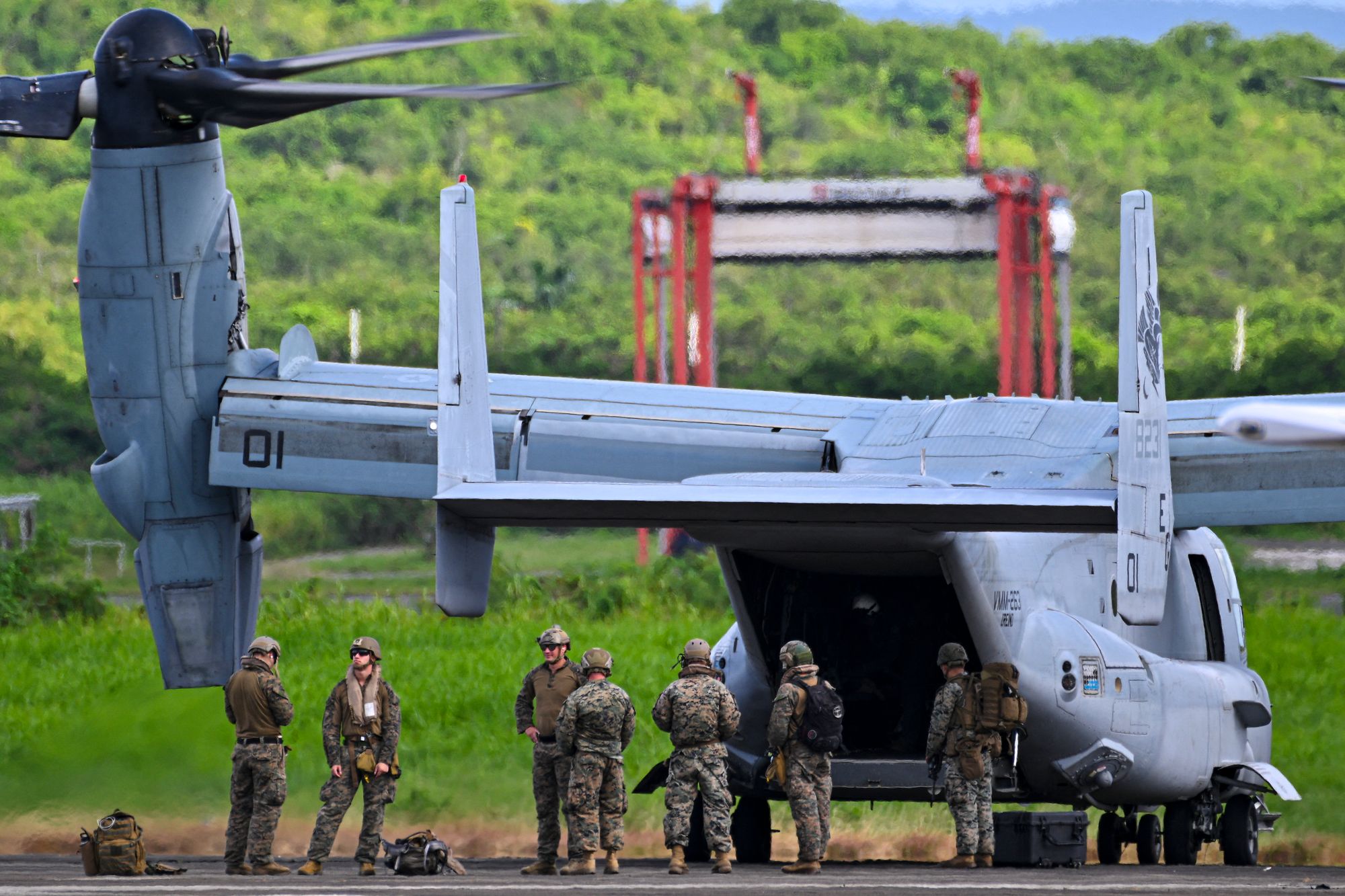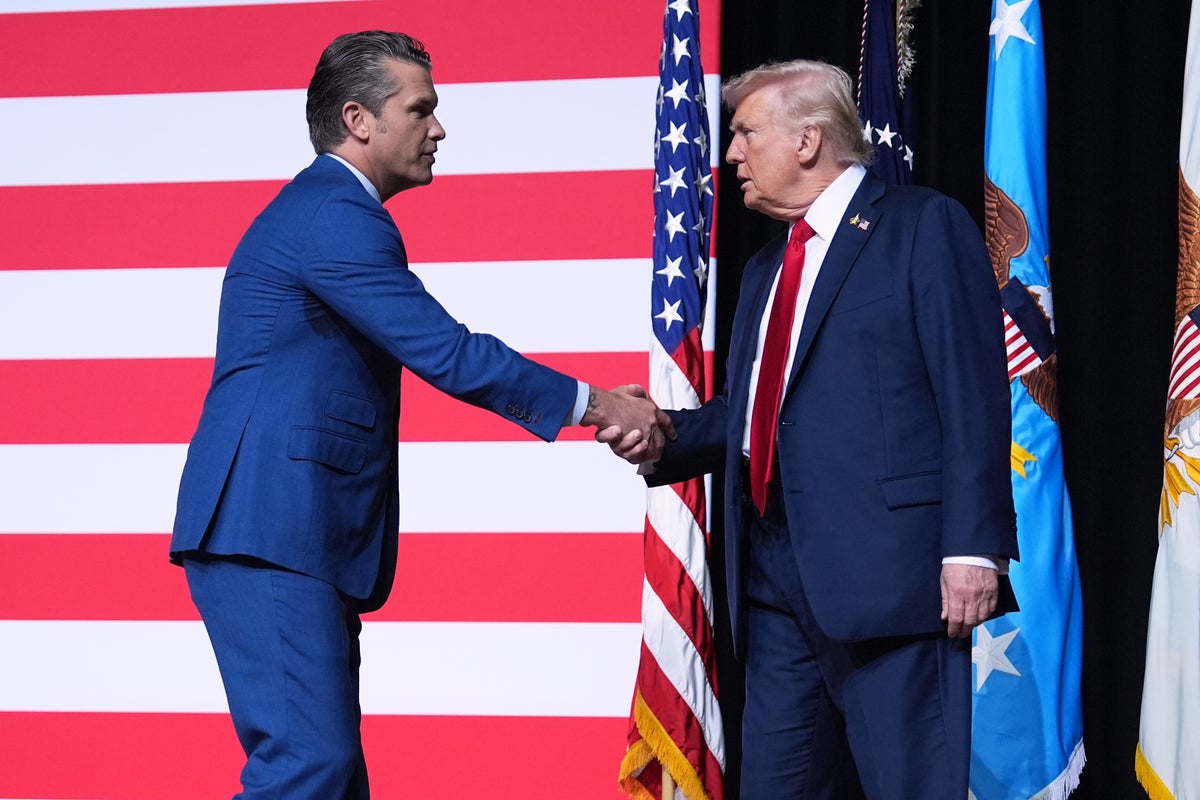The United States is formally engaged in an “armed conflict” with drug cartels that Donald Trump’s administration has labeled “unlawful combatants,” according to a confidential notice to members of Congress.
A unclassified notice obtained by The Independent was delivered to congressional national security committees this week. The New York Times first reported the statements.
The designation appears to claim extraordinary wartime powers to justify a series of strikes against alleged drug traffickers in the Caribbean Sea, which have drawn legal scrutiny and allegations that the administration and defense officials committed extrajudicial murder.
The administration has previously stated that the “presidentially-directed” strikes were performed in defense of national security and are “fully consistent with the law of armed conflict,” arguing that lethal force was permitted against targets allegedly smuggling drugs for cartels designated foreign terrorist organizations.
According to the notice, the administration says that the president has “determined” that cartels are “nonstate armed groups” whose actions “constitute an armed attack against the United States” and are now engaged in a “noninternational armed conflict” — or war with a non-state actor.

The administration cites a statute requiring reports to lawmakers about conflicts involving U.S. military personnel.
“The President directed these actions consistent with his responsibility to protect Americans and United States interests abroad and in furtherance of United States national security and foreign policy interests, pursuant to his constitutional authority as Commander in Chief and Chief Executive to conduct foreign relations,” the notice says.
The White House did not immediately return The Independent’s request for comment.
At least 17 people were killed in targeted strikes on vessels in the Caribbean in recent weeks.
On September 2, Trump announced on Truth Social that military assets killed “Tren de Aragua Narcoterrorists” who were “operating under the control of Nicolas Maduro,” Venezuela’s president, to smuggle drugs into the United States.

The strike killed 11 people on board, Trump said. Authorities in Venezuela have said those killed in the attack were not connected to the Tren de Aragua gang, which the Trump administration has labelled a foreign terrorist group whose members should be summarily deported from the country.
Trump announced a second strike September 15 against another vessel allegedly carrying narcotics, killing three “terrorists” on board, he said,
He announced a third strike September 19, claiming that “intelligence confirmed” a vessel was “trafficking illicit narcotics” and “transiting along a known narcotrafficking passage en route to poison Americans.” At least three people were killed, according to the president.
“Based upon the cumulative effects of these hostile acts against the citizens and interests of the United States and friendly foreign nations, the president determined that the United States is in a noninternational armed conflict with these designated terrorist organizations,” according to administration’s notice to Congress.
Defense officials have been ordered to “conduct operations against them pursuant to the law of armed conflict,” the notice says.
“The United States has now reached a critical point where we must use force in self-defense and defense of others against the ongoing attacks by these designated terrorist organizations,” according to the notice.

It remains unclear what evidence the United States has collected to justify the attacks; the White House and defense officials have declined to share additional information about the strikes, citing national security concerns.
Legal experts and former national security officials have disputed the president’s legal authority to launch extrajudicial killings against suspected drug traffickers, raising consequential questions on both the administration’s growing conflict with Venezuela and the president’s anti-immigration agenda.
In January, Trump issued an executive order designating Tren de Aragua as a foreign terrorist organization, paving the way for his order invoking the Alien Enemies Act to summarily deport suspected gang members.
Neither the Alien Enemies Act nor “foreign terrorist organization” designations allow for lethal force.
Deploying lethal force on suspicion of illegal activity “violates the letter and spirit of more than a century of international standards and the United States’ own regulations for maritime operations against civilian vessels in international waters,” according to the Washington Office on Latin America, a human rights advocacy organization.
The administration claims cartels “illegally and directly cause the deaths of tens of thousands of American citizens each year,” appearing to conflate trafficking drugs with an armed attack in an effort to justify use of military force that Congress has not approved.
“Every American should be alarmed that President Trump has decided he can wage secret wars against anyone he labels an enemy,” according to Senator Jack Reed, the top Democrat on the Senate Armed Services Committee.
“Drug cartels must be stopped, but declaring war [and] ordering lethal military force without Congress or public knowledge — nor legal justification — is unacceptable,” he said.
The administration’s escalation of an international so-called “war on drugs” follows significant reductions in law enforcement resources to combat the flow illegal drugs in the United States.
Thousands of federal law enforcement offices, including more than 2,000 Drug Enforcement Administration agents, have been diverted to support immigration enforcement.
That shift has significantly slowed down prosecutions of alleged drug traffickers, as the number of people charged with breaking federal drug laws has dropped to the lowest level in decades, a Reuters analysis found.
The Department of Justice is also planning to close the Organized Crime Drug Enforcement Task Forces as part of an agency-wide reorganization plan that would cut roughly 275 positions and reassign or eliminate roles for another 140 employees, according to Reuters.









